| 1948 |
First film studio16 February 1948Pakistan's first film studio Pancholi Film Studios was inaugurated (or revived) in Lahore. 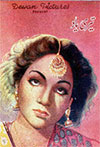
"Kashmir Hamara Hay"23 July 1948Pakistan's first documentary film "Kashmir Hamara Hay" by director Rafiq Chaman was released at Qaisar (Moonlight Cinema) in Lahore. Pakistan's first feature film7 August 1948Teri Yaad (1948) was first feature film in Pakistan. It was first Urdu film as well. The director was Dawood Chand. Asha Poslay and Nasir Khan was first pair in Pakistani films. |
| 1949 |
First film dialogue18 March 1949The dialogue by actress Shamim "Allah, Meri Izzat Teray Haat Mein Hay" in director Luqman's film Shahida (1949) was first ever recorded dialogue for any Pakistani film. This Urdu film celebrated silver jubilees in Delhi and Lucknow (India) but failed in Pakistan 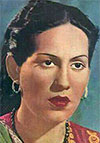
First superhit film28 August 1949Pakistan's first superhit film Pheray (1949) was Pakistan's first Punjabi, first silver jubilee and first musical film as well. Producer, director and actor Nazir starred in this musical and romantic film along with his actress wife Swaran Lata. Evernew Pictures' first film18 November 1949The first film released by Pakistan's largest film company, Evernew Pictures was Mundri (1949), directed by Dawood Chand. It was also the first Pakistani film of pre-partition Lahore superstar heroine Ragni, whose hero was Ilyas Kashmiri. |
| 1950 |
First silver jubilee Urdu film7 April 1950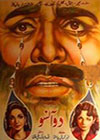
The first Urdu silver jubilee film in Pakistan was 2 Aansoo (1950), which celebrated its silver jubilee in 13 weeks in Karachi. Directed by Anwar Kamal Pasha and the main characters of this film were Shamim, Himalayawala and Shah Nawaz, while Sabiha and Santosh were the traditional pair. First historical filmsDirector Zahoor Raja's feature film Jihad (1950) on the subject of Kashmir issue and director Masood Parvez's feature film Beli (1950) on the subject of partition of India were first historical films in Pakistan. |
| 1951 |
First woman film director29 March 1951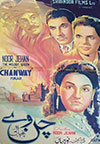
The musical film Chann Way (1951) was Madam Noor Jehan's first film in Pakistan, in which she became the first woman director in addition to being a heroine and singer. Film Billo7 December 1951The Punjabi film Billo (1951) was originally titled "Mirasi", which was changed due to the protests from the musician- community. Film Majajan (2006) was also originally titled "Mirasan" but once again protest was shown to work. |
| 1952 |
First superhit musical Urdu film29 March 1952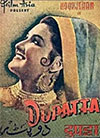
Dupatta (1952), a musical film directed by Sabtain Fazli, created a sensation in the Indian film circuit. Pakistan's first superstar hero Sudhir got breakthrough from this film. First ban on Indian films29 October 1952The government of Pakistan imposing the first ban on the free screening of Indian films. Only officially approved film distributors could import Indian films and separate quotas were set for the two parts of the country, East and West Pakistan. |
| 1954 |
First golden jubilee Urdu film3 June 1954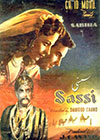
Pakistan's first Golden Jubilee Urdu film Saasi (1954) celebrated solo silver jubilee in Karachi. This film had Sabiha and Sudhir in lead roles، film director was Dawood Chand. A "film-for-film deal" with India9 July 1954In the "Jaal Movement", the leading film personalities demonstrated in Lahore and demanded a complete ban on the screening of Indian films. As a result of this movement, the government of Pakistan imposed further restrictions on the screening of Indian films and concluded a film-for-film deal under the "barter system", which increased the production of Pakistani films and for the first time the annual number of films reached double figures. First banned film11 August 1954Director W.Z. Ahmed's Urdu film Ruhi (1954) was first banned film due to allegations of obscenity and nudity. Shami and Santosh were the main characters. |
| 1955 |
First Karachi made Urdu film10 June 1955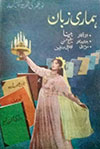
Hamari Zuban (1955) was first Karachi made film. Director Sheikh Hassan played the role as hero in this political motivated film, while actress named Bina was heroine. "Baba-e-Urdu" Maulvi Abdul Haq also played an important role in this film. First Karachi made Punjabi film28 October 1955Heer (1955) was first Punjabi film made by any Karachi film company. It was also shot in Lahore. Swaran Lata and Inayat Hussain Bhatti were the main characters in this musical film directed by Nazir. Zarif in the title role18 Novemebr 1955Zarif was first comedian to play the title role in Punjabi film Patay Khan (1955). Singer Zubaida Khanum was his heroine while Noor Jehan and Aslam Pervez were the lead pair. The director was M.A. Rasheed. A record 19 films were released this year following the film-for-film deal with India. |
| 1956 |
First blockbuster film6 January 1956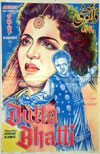
Pakistan's first blockbuster film was Dulla Bhatti (1956). Lahore's modern film studio, Evernew Studios was established from the earnings of this film. Agha G.A. Gul was producer and M.S. Dar (father of Aslam Dar ) was director. Sabiha, Sudhir and Allauddin were in lead roles. First Sindhi film16 March 1956Sheikh Hassan's film Umar Marvi (1956) was Pakistan's first Sindhi film, Nighat Sultana and Fazlani were in lead roles. First Bengali film3 August 1956Pakistan's first Bengali film Mukh-o-Mukhosh (1956) was also released. Filmmaker Jabbar Khan acted in this film as well. Punjabi/Bengali film6 July 1956Director Muzaffar Tahir's Jabroo (1956) was the only Punjabi film, which was dubbed into Bengali and screened in East Pakistan. It was Akmal's first film as a hero with Yasmin as the heroine. First action film14 September 1956Director Ashfaq Malik's film Baghi (1956) was Pakistan's first superhit golden jubilee action Urdu film. Sudhir earned the title of Pakistan's first "action hero" from this film. Musarrat Nazir was the heroine. It was first Pakistani film which was also released in China and was hugely popular. Hindu artists back in Pakistan?20 January 1956A number of Hindu artists were invited from India to work in Karachi made film Anokhi (1956). Heroine Sheila Ramani, composer Timar Barn and his assistant Deebo Bhattacharya, who preferred to stay in Pakistan. Some well-known prepartition Indian artists were also invited by producer J.C. Annand for Karachi made film Miss 56 (1956). Apart from writer I.S. Johar, lyricist Madhuk and composer Vinod, there was also film director Roop K. Shorey who came with his actress wife Meena Shorey, but left empty handed. He had also lost his film studio after partition, Shorey Film Studio (ShahNoor Film Studio) on Multan Road Lahore. Arrival of big artists1956 was the memorable year when many big names in Pakistan's film history were introduced. Neelo, Shamim Ara, Bahar, Deeba, Ejaz, Habib, Lehri, Razia, Sultan Rahi, Sawan, Ahmad Rushdi, Mehdi Hassan, Naseem Begum, Aslam Dar, Khalil Kaiser and Khawaja Khursheed Anwar were among them. |
| 1957 |
Record business of film Yakkay Wali22 February 1957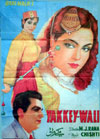
Director M.J. Rana's record-breaking Punjabi film Yakkay Waili (1957) grossed 45 times its cost. Pakistan's largest film studio, Bari Studio, built on 92 kanals of land, was established with the earnings of this film. Musarrat Nazir was in the title role and Sudhir was hero. Director W.Z. Ahmed also built a mini-film studio from the earnings of the Urdu film Waada (1957), which was released on May 2, 1957. Sabiha and Santosh were the main characters. Support for Dhaka films19 June 1957The East Pakistan Provincial Assembly unanimously approved the East Pakistan Film Development Corporation Bill, 1957 (EPFDC), introduced by the Minister of Industry (and the founder of Bangladesh) Sheikh Mujibur Rehman, which allowed the Dhaka films to be produced at government expense. This facility was not available to the filmmakers of West Pakistan. Interestingly, in 1973, during the Bhutto regime, an unsuccessful attempt was made to give government support to Pakistani films for the first time. |
| 1958 |
An Islamic film29 June 1958
Director Ashiq Bhatti's unique film Tauheed (1958) was an Islamic and educational film. The first half of this film was a documentary film on the completion of the universe in the light of the teachings of the Holy Quran, while the second half was a drama. Nayyar Sultana and Talish were main characters. Interestingly, before this film, Talish was also hero in another Islamic film, Darbar-e-Habib (1956), opposite Yasmin. It was also a religious film with Islamic history and a social drama. Film Jatti's title20 June 1958Director M.J. Rana's Punjabi film Jatti (1958) was renamed as "Chatti" due to protests by the Jat-communiyt, but the film remained in the record books with its original title. Musarrat Nazir and Sudhir were the main characters in this film. Nigar Awards17 June 1957Pakistan's first private film awards Nigar Awards were introduced. 7 Lakh (1957) was "best film" but the "best director" was W.Z. Ahmed for film Waada (1957). These awards were given only to Urdu films on linguistic discrimination. |
| 1959 |
Film Kartar Singh18 June 1959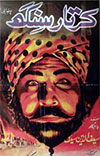
The masterpiece Punjabi film Kartar Singh (1959) was Pakistan's best film on the history of partition of India. Director and writer was Saifuddin Saif. Allauddin played the title role while the lead pair was Musarrat Nazir and Sudhir. First Urdu film from Dacca29 May 1959Jago Hua Savera (1959) was first Urdu film from Dacca, East Pakistan. The filmmakers team was from Lahore with local actors. Director Ajay Kardar's film won a gold medal in a film festival in Russia. |
| 1960 |
Zarif died30 October 1960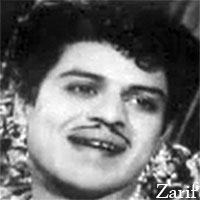
Pakistan's prominent comedian Zarif died by heart attack.
It should be remembered that on May 27, 1961, the only ceremony of "Presidential Awards" was held during the Ayub regime. Film Hamsafar8 April 1960Director Shaukat Hashmi's Urdu film Hamsafar (1960) was entirely shot in East Pakistan. All the actors of this West Pakistani film were from Lahore, including Yasmin and Aslam Pervez in the lead roles. |
| 1961 |
The era of color films27 October 1961Director Munshi Dil's Urdu film Gul Bakawli (1961) was first Pakistani film to have all its songs filmed in colour. Jameela Razzaq and Sudhir were the main characters. First jungle film28 April 1961Director Rahim Gul's Urdu film Habu (1961) was Pakistan's first jungle film featuring Husna and Habib as a traditional pair. |
| 1962 |
Ban on new Indian filmsThe government of Pakistan has once again restricted the screening of Indian films, banning the screening of new Indian films and retaining the permission to screen five-year-old Indian films. 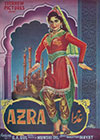
Partial color film13 April 1962The first half of film Azra (1962) was filmed in colour. Directed by Munshi Dil. Neelo and Ejaz were the main characters. Big discoveries1962 was also memorable year in the film history of Pakistani films, when many big artists were introduced. Zeba, Mohammad Ali, Waheed Murad, Shabnam, Robin Ghosh, Shabana, Rehman, Rani, Adeeb, Zulfi, Khalifa Nazir, Masood Rana, Master Abdullah, Khalil Ahmed and Masroor Anwar were some of them. |
| 1963 |
Some heroes, some villains30 August 1963The great actor Allauddin was presented as a solo hero for the first time in director Haider Chaudhry's debut film Tees Mar Khan (1963). He was first villain, supporting or character actor to become a hero. Earlier, actor Aslam Pervez was first Pakistani film hero to become a top villain actor. His last hit film as a hero, Ishq Par Zor Nahin (1963) was released this year. |
| 1964 |
Rehman accident4 December 1964Producer, director and hero Rehman's leg was amputated in a car accident during the shooting of Dhaka's Urdu film Millan (1964). He spent the rest of his life with an artificial leg. Madam Noor Jehan and Heroine Deeba rendered their services for this film for a nominal fee of one rupee each. First full-length color film23 April 1964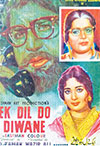
Pakistan's first full-length colored film Sangam (1964) was made by Dhaka filmmaker and director Zahir Raihan. Rozi and Haroon were main characters in this film. First full-length Lahore-made color film20 November 1964In the same year, the first full color film of West Pakistan Ek Dil Do Diwanay (1964) was also released. Rani, Kemal and Zeenat were main characters in this film directed by Wazir Ali . First film made abroad4 December 1964Another Dhaka-made film Karwaan (1964) was shot abroad (Nepal) for the first time. Shabnam and Haroon were pair in this film Increasing filmmakingAfter the ban on the release of new Indian films in 1964, for the first time, the number of Pakistani films released in a calendar year exceeded fifty and a record 73 films were released. |
| 1965 |
Complete ban on Indian films6 September 1965After the India-Pakistan war of September 6, 1965, the screening of Indian films was completely banned in Pakistan, which gave Pakistani films an open field without competition and the number and success of films increased significantly. Film Jeedar19 November 1965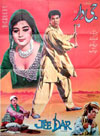
The first Platinum Jubilee Punjabi film was Jeedar (1965). The title role of this film directed by M.J. Rana was played by actor Sudhir. During the screening of this film, the gallery of Ritz Cinema Lahore collapsed, killing and injuring several people. Film Malangi5 November 1965Director Rashid Akhtar's film Malangi (1965) celebrated the golden jubilee twice at the same cinema (Odien Lahore). It was the biggest film of Akmal's film career in which he was in the title role. First cinemascope film3 December 1965Director Mustafiz's film Mala (1965) was Pakistan's first cinemascope color film shot in Dhaka. Sultana Zaman and Azeem were a film duo. Before that, on 12 April 1965, the film Bahana (1965), directed by Zahir Raihan, was Pakistan's first black and white cinemascope film. This film was shot in Karachi. Kaburi and Rehman were leading actors. First century maker actorAllauddin was the first Pakistani actor to achieve the distinction of working in 100 films. |
| 1966 |
The first major film murder21 September 1966
Famous producer, director and actor Khalil Kaiser was first big name to be killed in Pakistan's film history. The killers were usually unknown persons..!
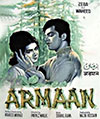
Film Armaan18 March 1966Renowned film director Pervez Malik's superhit musical and romantic Urdu film Armaan (1966) was Pakistan's first Platinum Jubilee Urdu film which ran for 34 consecutive weeks. Waheed Murad got superstar status from this film. Zeba was his heroine. Film Badnam2 September 1966Producer and director Iqbal Shahzad's masterpiece film Badnam (1966) was dubbed in seventeen different languages and released in Russian cinemas. A film studio was also built from the earnings of this film. "Son of Pakistan"12 August 1966The Bengali film Son of Pakistan (1966) was first film in which the word "Pakistan" appeared. |
| 1967 |
Akmal's death11 June 1967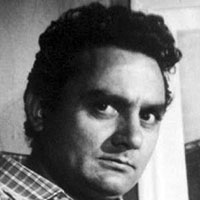
For the first time in the film history of Pakistan, a top film hero Akmal died..! Akmal was the second superstar hero in Punjabi films after Sudhir, lost his life at the peak of his film career. However, his untimely death did not affect film activities because as an alternative Punjabi films saw the arrival of handsome heroes like Ejaz and Habib. Film Chakori22 March 1967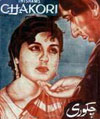
The Bengali/Urdu double version film Chakori (1967) was the most successful film from East Pakistan. Director was Ehtisham. Nadeem, a young singer from Karachi was seen as the hero. This film celebrated platinum jubilee in Karachi. Shabana was in the title roll. First Pakistani film made in Europe6 October 1967The color Urdu film Rishta Hay Pyar Ka (1967) was first Pakistani film, which was shot in Iran, Lebanon, Syria, Egypt and the UK. Zebaand Waheed Murad were main actors and it was directed by Qamar Zaidi. |
| 1968 |
100 films pr. year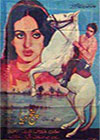
For the first time in Pakistan's film history, in 1968, more than a hundred films were released in a single year, including Bengali films and maximum 64 Urdu films in any year. First color Punjabi film22 December 1968The Punjabi film 5 Darya (1968) was Pakistan's first Punjabi film. It was Akmal's only color film and released after his death. Firdous was heroine while Jafar Malik was the director. |
| 1969 |
Film Zarqa17 October 1969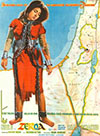
Pakistan's first diamond jubilee Urdu film Zarqa (1969) was producer, director and writer Riaz Shaheid's only successful film. Neelo, Ejaz, Talish and Allauddin were in the lead roles. Film Dillan Day Souday13 June 1969Director S.A. Bukhari's film Dillan Day Sauday (1969) was first Punjabi film to win the Golden Jubilee Award in Karachi. Interestingly, this was the first film to celebrate Golden Jubilees in Lahore and Karachi, simultaneously. Naghma, Firdous and Ejaz were main characters. Film on Air Force11 December 1969Director Ajay Kardar's film Qasm Us Waqt Ki (1969) was first film based on Pakistan Air Force, starring Shabnam and Tariq Aziz in lead roles. First female musician11 December 1969Shamim Nazli, sister of renowned singer Mala, earned the distinction of being Pakistan's first female composer when she composed the music for the film Baharen Phir Bhi Aye Gi (1969). First century maker heroHabib was the first film hero to appear in more than a hundred films. |
| 1970 |
1.000 films completed1970 was the last year of United Pakistan in which a total of 130 films were released, which is the record for the highest number of films released in a single year in Pakistan. Bengali films were also included. This year also saw the first hit trick of releasing 100 films annually. In the same year Pakistan completed its record of releasing 1.000 films in its 22nd film year. First Pashto film26 June 1970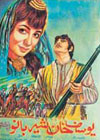
Pakistan's first Pashto film Yousuf Khan Sher Bano (1970) was released in Karachi. Directed by Aziz Tabassum. This super hit Pashto film featured Yasmin Khan, Badar Munir and Nemat Sarhadhi in the lead roles. First Gujarati film1 December 1970The first Gujarati film Maa Tay Maa (1970) made for the Memon community in Karachi. Shaista Qaiser and Agha Sajjad played the leading roles in this film directed by Iqbal Akhtar. Punjabi films in KarachiIn the same year, two Punjabi films had their first Platinum Jubilee in Karachi. The first film was director Khalifa Saeed's Anwara (1970). Naghama, Ejaz and Sawan were the main characters. The second film was director Waheed Dar's Maa Puttar (1970) starring Firdous, Sudhir, Nabeela and Mazhar Shah. A film without a hero heroine7 August 1970Director Wazir Ali's film Hamlog (1970) had no traditional hero-heroine but two children, Jugnu and Murad were in main roles. Film Chand Suraj25 December 1970Chand Suraj (1970), an Urdu film directed by Shor Lakhnavi consisted of two different stories. The main characters of the first half were Rozina and Waheed Murad, while the second half had Shabana and Nadeem. First Century Maker MusicianG.A. Chishti was first Pakistani composer to complete a century of films. |
| 1971 |
Secession of East Pakistan16 December 1971
Pakistan lost its "Dacca film circuit" after the secession of East Pakistan. General Niazi signed the shameful document of surrender after nine months civil war and a huge military defeat against India. The last Urdu film from East Pakistan was Payel (1970), wich was made by Mustafiz. but the last film from Dacca was director Zahir Raihan's Mehrban (1971) which was released in Pakistan. First film made in Japan4 June 1971Director Jameel Akhtar's Urdu film Khamosh Nighen (1971) was first Pakistani film shot in Japan. Rozina, Waheed Murad and Manwar Zarif were the main characters. First Punjabi film made in London20 November 1971The last Eid-ul-Fitr of "United Pakistan" was on November 20, 1971. On this day, the first Punjabi film Pehlwan Ji in London (1971) was released, which was shot in London. Sawan played the lead role while Nagma and Habib were the other important characters. |
| 1972 |
First diamond jubilee Punjabi film15 September 1972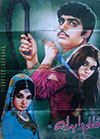
Pakistan's first diamond jubilee Punjabi film was Zalam Da Badla (1972). Director Kaifee was also the hero of his film and Aliya, Ghazala and Asad Bukhari were other important characters in this film. First Punjabi/Pashto film30 June 1972Puttar Da Pyar (1972) was first Punjabi film dubbed into Pashto. Firdous, Sudhir and Salma Mumtaz were the main characters. The first color Pashto film15 December 1972Pakistan's first color Pashto film was Ilaqa Ghair (1972). Directed by Inayatullah Khan, this film had Surayya Khan and Badar Munir as the main characters. Niggo killed5 January 1972Famous film dancer Niggo was killed by her husband. |
| 1973 |
First Saraiki film7 December 1973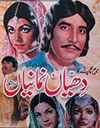
Dhian Nimania (1973) was the first Saraiki film, which is a dialect of the Punjabi language spoken in the southwestern regions of Punjab province. Producer, director and singer Inayat Hussain Bhatti was in the lead role with Khanum in his film. First Golden Jubilee Pashto film28 December 1973The Golden Jubilee Pashto film Orbal (1973) was first Golden Jubilee film in Peshawar. In this memorable film directed by Mumtaz Ali Khan, Badar Munir, Yasmin Khan, Asif Khan and Nemat Sarhadhi were in the lead roles. Three directors of one film23 November 1973The Urdu film Ek Thi Larki (1973) starred Rani and Shahid, but the film had three directors, Hassan Tariq, Ehtsham and Sharif Nayyar, yet it was a failure. |
| 1974 |
Pakistan's first film policy28 July 1974The Bhutto government for the first time announced the first film policy of Pakistan for the welfare of the film industry and established a national organization called National Film Development Corporation NAFDEC which did some major works in a short period of time. Provided facilities to filmmakers. Produced films and cinemas at government expense, arranged film screenings abroad and organized film festivals. It also gave film awards, but later, like other national institutions, this institution also collapsed and was completely closed during the reign of General Musharraf. 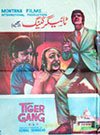
Pakistan's first international film29 March 1974Director Iqbal Shehzad's film Tiger Gang (1974) was Pakistan's first film co-produced by Germany and Italy, with a number of international actors besides Zeba and Mohammad Ali. First diamond jubilee Punjabi film in Karachi23 August 1974Khatarnaak (1974) was first Punjabi film to celebrate the diamond jubilee in Karachi. Director Rahmat Ali's infamous film starred Yousuf Khan as the hero while Neelo got the unique distinction of being the only actress whose Urdu and Punjabi films celebrated diamond jubilees. First Sindhi/Punjabi film18 October 1974The first Sindhi/Punjabi version of the Sindhi film Ghairat Jo Sawal (1974) was the Punjabi version of Shah Zoor (1976), which was released on 19 November 1976. Ishrat Chaudhry and Kaifee were main characters. In 1974 again more than hundred films were released. |
| 1975 |
The era of violent Punjabi films8 August 1975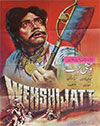
Director Hassan Askari's action film Wehshi Jatt (1975) made Punjabi films violent. The title role of this violent film based on famous writer Ahmad Nadeem Qasmi 's novel "Gandasa" was played by Sultan Rahi and became his signature. The golden days of Urdu films1 August 1975Two diamond jubilee films, director S. Sulaiman's Anari and director Pervez Malik's Pehchan (1975) were released on the same day in Karachi. In these two films, the most popular pair of Urdu films, Shabnam and Nadeem were present. The first Urdu/Pashto film12 December 1975Director Mumtaz Ali Khan's Dulhan Ek Raat Ki (1975) was first Urdu/Pashto double version film. It is the only Urdu film of Badar Munir to celebrate diamond jubilee. The film Allah-o-Akbar31 October 1975A documentary film Allah-o-Akbar (1975) was directed by Rafiq Chaman. Commentary was in the voice of actor Muhammad Ali. At the blessed places, one can also hear the recitation of the Holy Quran by various reciters. |
| 1976 |
Death of Manwar Zarif29 April 1976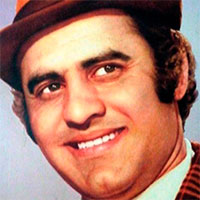
Pakistan's greatest comedian Munawar Zarif died suddenly.
Pakistan's first English film17 December 1976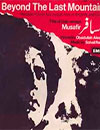
The first English film Beyond The Last Mountain (1976) was released in Pakistan, the Urdu version of which was Musafar (1976). This film was made at the government expense by producer, director, writer and a member of the Senate, Javed Jabbar. The film featured Usman Pirzada and actress Shamim Ahmed in the lead roles. The first Pakistan/Sri Lanka film13 August 1976The first joint production of Pakistan and Sri Lanka, the film Sazish (1976), was released, in which Malini from Sri Lanka and Usman Pirzada from Pakistan were in the lead roles. Pakistan's first Balochi filmPakistan's first Balochi film, Hammal O Mahganj (2017) was made in 1976 but could not be released due to Baloch protests. The film, which was released in 2017. This film was directed by Anwar Iqbal and starred with actress Anita Gill. |
| 1977 |
401 weeks of film mirrors18 March 1977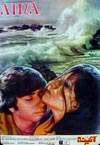
The film Aaina (1977) ran for 401 weeks in Karachi. The same film also set a record for the longest run of 48 weeks at any main theater in Karachi. Shabnam and Nadeem were the main characters in this historical film directed by Nazrul Islam. Nine composers of a single film21 October 1977In the Urdu film Insan (1977) by director Masood Parvez, there were 9 musicians, out of which 7 musicians composed one song each, while two musicians gave background music. The interesting thing was that all seven songs of this film were sung by Mehnaz who was the most popular singer of Urdu films at that time. Babra Sharif and Shahid were a couple. Political instabilityAfter the release of more than hundred films for three consecutive years, only 80 films could be released this year due to political instability in the country. Next year again hundred films were released. |
| 1978 |
Ejaz smuggling and Shabnam rape caseIn 1978, two serious incidents shook the film world. The first incident was on March 3, 1978, when prominent actor Ijaz was jailed in London for drug smuggling, and the second incident was on May 12, 1978, when prominent actress Shabnam was raped. Reportedly, a similar incident happened to actress Zamurrad which was not reported. |
| 1979 |
Maula Jatt's success9 February 1979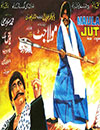
Director Younis Malik's Punjabi film Maula Jatt (1979) was a phenomenal success at the box office. The main reason for this was an over-the-top mischievous filmmaker who included uncensored cuts in the film in which human organs are brutally chopped off. People thronged the theaters to watch such gruesome scenes. This was the reason why this film had a solo diamond jubilee run at its main theater, i.e. at a single cinema, for two consecutive years. Sultan Rahi and Mustafa Qureshi were the lead characters in this trend-maker film. Motion Pictures Ordinance Executive 19793 September 1979The Government of Pakistan issued an extraordinary gazette amending the "Censorship of Films Act, 1963" and enacting the "Motion Pictures Ordinance, 1979", which, besides obliging filmmakers to register and the censorship policy was tightened. The act also specifically mentioned the film Maula Jatt (1979) whose filmmaker continued to obtain an injunction against the ban on the film, which was lifted under a martial law order banning the violent film. Alternative entertainment3 November 1979Director Haider Chaudhry's film Dubai Chalo (1979) introduced the comedy duo of Nanha and Ali Ejaz as heroes, which proved an alternative entertainment to lighthearted films compared to action Punjabi films. Official film failure23 March 1979The film Khak-o-Khoon (1979) by director Masood Parvez, made at government expense on the subject of the history of Pakistan, failed miserably. Naveen Tajik and Shujaat Hashmi were the main characters. |
| 1980 |
Dictators favorite actor?23 May 1980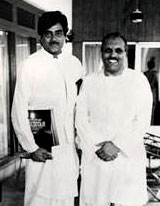
After a special permission from dictator General Zia-ul-Haq, a new Indian film Kashish (1980) and few other old Indian films were released in Pakistan. Later, the High Court allowed the screening of more old Indian films. It is said that an old Indian film Noor Jahan (1967) had a diamond jubilee in Karachi. General Zia, the most disgraced ruler of Pakistan, was also a big fan of Indian films and spent most of his time watching Indian films on VCR. A third-class Indian actor became a member of his household who was also a member of an extremist Hindu party. Interestingly, the same actor played the role of a drunken Pakistani army officer in his very first film. Perhaps therefor he was dictators favorite actor..? Pakistan's first Hindko film20 October 1980Qisa Khawani (1980), a branch of the Punjabi language spoken in the Hazara Division of Khyber Pakhtunkhwa province. Starring Sultan Rahi and Yasmin Khan in the lead roles. Qatil Shafai was a filmmaker and his son was a director. |
| 1981 |
The peak period of the film business2 August 1981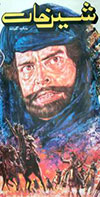
Three Punjabi films released on Eid-ul-Fitr Day of August 2, 1981, Sher Khan, Sala Sahib and Chann Variam (1981), were released on the same day and all three films set a unique record of celebrating diamond jubilees. These three films ran continuously for more than a year in three opposite cinemas (Naghma, Metropole, Gulistan). Due to the big jubilees of films, there were fewer cinemas in Lahore for the release of new films. Mohammad Ali and Punjabi filmsIt is said that the title role of the film Sher Khan (1981) was offered to the great actor of Urdu films, Mohammad Ali, but he refused. He got more opportunities and played the title roles in films Wadda Khan (1983) and Haibat Khan (1984) but failed to impress the Punjabi film audience with his disappointing performance. 2.000 filmsIn 1981, after 33 years, the total number of films made in Pakistan reached two thousand. The first thousand films were made in 22 years, but the second thousand films were made in just 11 years, which can be estimated from the peak of the film business. |
| 1983 |
Shabnam and Nadeem's last diamond jubilee film22 April 1983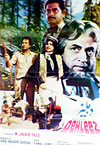
Director Mohammad Javed Fazil's film Delheez (1983) was the last diamond jubilee film of the most popular pair of Urdu films, Shabnam and Nadeem. This film was Mehdi Hasan's last important film in terms of his hit songs. The superiority of Pashto filmsFor the first time in Pakistan's film history, Pashto films outnumbered Urdu films. Co-production filmsDue to the decline of Urdu films, the trend of making joint films with other countries started. This year, Urdu films were made in collaboration with Kenya in the film Love Story (1983) and Kabhi AlWidaa Na Kehna (1983) in with Sri Lanka. Sad end of Waheed Murad23 November 1983The sudden death of Waheed Murad, the superstar hero of romantic Urdu films, gave him a new lease of life to the extent of the film media. In his last days all his ancestors had left him and he had become a forgotten legend. |
| 1984 |
Iqbal Hasan killed14 November 1984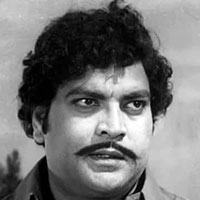
Popular Punjabi film actor Iqbal Hassan died in a traffic accident. He was at the peak of his film career. Aslam Pervez, who was injured along with him, also died a week later. First Pakistan/Bangladesh film30 June 1984The first joint film of Pakistan and Bangladesh, Basera (1984), was released. Bengali film director Ehtesham had his son-in-law, actor Nadeem as hero, had Shabana. First National Film Awards28 December 1984The "National Film Awards" ceremony was held for the first time in Pakistan, in which awards were given to the films of 1983. |
| 1986 |
Nanha suicide2 June 1986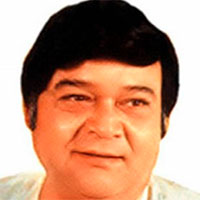
The news of the suicide of prominent comedian Nanha shocked the filmgoers. During Sultan Rahi 's monopoly of action films, the light social comedy films of the duo of Nanha and Ali Ejaz achieved exemplary success. A film based on drugs11 April 1986Director Haider Chaudhry's Punjabi film Joora (1986) was on the subject of the rampant use of drugs in Pakistani society. Adapted from a TV drama Ragun Mein Andhera, the film highlighted the biggest problem of the time when heroin and Kalashnikov smugglers were roaming around without fear. After 1978, 100 films were released again in 1986. |
| 1987 |
Shabnam's first Punjabi film7 August 1987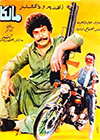
Director Safdar Hussain's film Malika (1987) was the first Punjabi film of the superstar actress of Urdu films, Shabnam, in which Yusuf Khan was her hero. Sudhir's last film7 August 1987Coincidentally, on the same day, Pakistan's first superstar Hero Sudhir's last film Son of AnnData (1987) was also released. He is the only artist in Pakistan's film history who was always cast in lead roles in his forty-year long film career. |
| 1988 |
Nadeem's first Punjabi film25 July 1988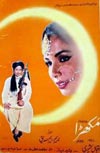
The greatest significance of director Iqbal Kashmiri's musical film Mukhra (1988) was that it was the first Punjabi film of Urdu film superstar hero Nadeem. Babra Sharif was his heroine. Indian films on VCR and action Punjabi films drove middle class and Urdu filmgoers away from cinemas. In such a situation, during the decline of Pakistani Urdu films, after Shabnam, Nadeem also tried his luck in Punjabi films, but both failed. |
| 1989 |
Punjabi/Urdu films7 May 1989Director Nazrul Islam's film Madam Bawri (1989) was Pakistan's first double version Punjabi/Urdu film. This series was so successful that in the mid-1990s, more than 150 films dubbed from Punjabi to Urdu were presented in the Karachi circuit. 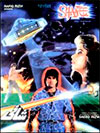
The first science fiction film10 March 1989Director Saeed Rizvi's film Shani (1989) was Pakistan's first science fiction film starring Babra Sharif and Sherry Malik. 100 films - last time!1989 was the last time a hundred films were released in a calendar year. In the 75 years of Pakistan's film history, more than a hundred films were released in a year 9 times, including two hat-tricks. |
| 1990 |
International Guerillas27 April 1990The film International Guerrilla (1990) directed by Jan Muhammad Juman gained international fame. The film was made against the damned Salman Rushdie and starred Afzal Ahmed in the lead role. Last main film artistsThe same year saw the arrival of the next two generations of prominent artists, Saima (Film Khatarnak 1990), Shaan and Reema (Film Bulandi 1990), who were the last big batch of traditional film artists. |
| 1991 |
Monopoly of Pashto films1991 marked the end of the decline of Urdu films when only six pure Urdu films were released in the entire year. That year, more Pashto films were released than Punjabi films. |
| 1992 |
3.000 filmsIn 1992, the total number of films made in Pakistan reached 3.000 in 44 years. Again a thousand films were completed in just eleven years. |
| 1995 |
First diamond jubilee Urdu film in Lahore14 April 1995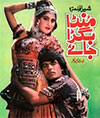
The first diamond jubilee Urdu film Munda Bagra Jaye (1995) was released in Lahore. This was the first film of director Shamim Ara who did diamond jubilees in Lahore and Karachi, simultaneously. Reema, Babar Ali, Jan Rambo and Shafqat Cheema were as main characters. Nadira killed6 August 1995Nadira, a famous heroine of Punjabi films, was murdered. It was allegedly done by one of her lovers. |
| 1996 |
Assassination of Sultan Rahi9 January 1996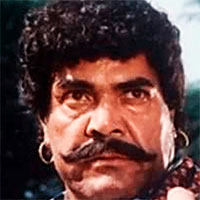
Sultan Rahi, the uncrowned king of action Punjabi films, was murdered on G.T. Road by unknown persons. The culprits could not be traced till date. This murder has thrown away the funeral of Punjabi films which revolved around the same person for the last two decades. In the same year, many Urdu films were very successful. |
| 1998 |
New era of Punjabi films16 October 1998
Syed Noor's film Choorian (1998) breathed new life into Punjabi films by setting new records of success. Saima and Moamar Rana were the main characters of this mega hit diamond jubilee musical romantic film . The pair of Saima and ShaanThe successful pairing of Saima and Shaan began with the Punjabi film Pardesi (1998) of the same year. Both of them had worked together in more than hundred films. The failure of the film JinnahIn the same year, the film "Jinnah" (1998), made in Hollywood with Pakistani capital, failed miserably. Christopher Lee played the title role. |
| 1999 |
Under fifty films per yearIn 1999, 35 years after 1963, less than 50 films were released. |
| 2003 |
The advent of digital cinemasIn 2003 digital cinemas arrived in Karachi and "Universal Cineplex" was inaugurated in Clifton. |
| 2005 |
Closure of cinemasThe trend of closure of traditional cinemas in Pakistan had accelerated. Karachi used to have around 120 cinemas but only 34 were left in 2005. Many famous cinemas in Lahore like Naghama, Ritz, Mubarak, Ratan, Regent, Palace and Mahfil etc. were also closed. Pakistan's first film TV channel1 February 2005Filmazia, Pakistan's first film satellite TV channel, was launched on February 1, 2005. |
| 2006 |
Re-examination of Indian films23 April 2006
After a period of 26 years after 1980, in 2006, once again the series of showing Indian films started in Pakistani cinemas. The classic film Mughal-e-Azam (1960) was released at Gulistan Cinema Lahore, but failed miserably. The Indian film Taj Mahal (2005) starring Madam Noor Jahan's granddaughter Sonia Jahan, released at Plaza Cinema Lahore, also flopped badly. This series of screening of Indian films continued for the next 13 years, i.e. until 2019, when India unilaterally resolved the Kashmir issue permanently. Film Majajan24 March 2006Majajan (2006) ran for 300 weeks in Lahore. It is the only film of Pakistan which had a pure diamond jubilee compared to Indian films. Saima and Shaan were the lead characters in this romantic and musical film directed by Syed Noor. |
| 2007 |
The age of digital films20 July 2007Director Shoaib Mansoor's film Khuda Kay Liye (2007) was Pakistan's first digital film. Shaan and Iman Ali were the main characters. |
| 2011 |
4.000 filmsIn 2011, after a period of 63 years, the total number of films made in Pakistan reached 4.000. Interestingly, it took a long time of 22 years to complete the first thousand films of Pakistan, but only 11 years each for the next two thousand films. 1970 to mid 1990, there was a period of extreme boom in Pakistani films. Then, it took 19 years for the next thousand films which was a proof of the decline of the film business. |
| 2012 |
Destruction of cinemas21 September 2012
An angry mob vandalized and set fire to several cinemas due to a protest against an anti-Islamic American film. Nishat, Capri, Prince and Bombino cinemas in Karachi, Firdous, Shama and Capital cinemas in Peshawar and Delight cinema Quetta were damaged. Only 11 percent of filmgoersAccording to a 2012 survey, only 11 percent of people in Pakistan watched films, of which only 3.4 million or 17 percent watched a film every week. |
| 2019 |
Another ban on Indian films5 August 2019The Indian government through a constitutional amendment abolished the special status of Kashmir and divided the state into two parts, Jammu and Kashmir and Ladakh and merged it with the Centre. They also include the areas of Pakistani Kashmir and Gilgit-Baltistan. The "Hybrid Government of General Bajwa" and his puppet Prime Minister Imran Khan became a picture of helplessness and just watched the spectacle. Not only protest was announced every Friday but Indian films released on same day were also banned. Indian films ran in Pakistani cinemas for 13 consecutive years from 2006 till 2019. In total, Indian films were screened in Pakistan for 32 years. |
| 2022 |
Return of Maula Jatt13 October 2022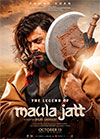
Director Bilal Lashari's action Punjabi film The Legend of Maula Jat (2022) released worldwide. Based on the story and characters of the old film Maula Jatt (1979) written by writer Nasir Adeeb, the film stars Fawad Khan, Hamza Ali Abbasi, Maira Khan and Hamaima Malik played the roles of "Sultan Rahi/Maula Jat", "Mustafa Qureshi/Noori Nat", "Asiya/Mukho Jatti" and "Chakori/Daro Natni", respectively. It is claimed to be the highest-grossing film in Pakistan, earning three billion rupees (or nearly two hundred million dollars). The film The Legend of Maula Jatt cost more than fifty crore rupees but earned "only six to seven times" of its cost, which in no way matched the business of the popular period film Yakkay Wali (1957). The record is not broken which earned 45 times its cost. However, today's rupee is not even equal to the paisa or pie of the 1950s. |
| 2023 |
One film, three stories29 June 2023Film Teri Meri Kahanian (2023) was a three-story film with three different directors, Nabeel Qureshi, Marina Khan and Nadeem Baig, and also three different writers, Khalil-ur-Rehman Qamar, Wase Chaudhry and Ali Abbas Naqvi. Traditional Karachi TV artists worked in this film. |

















































































































































































































































